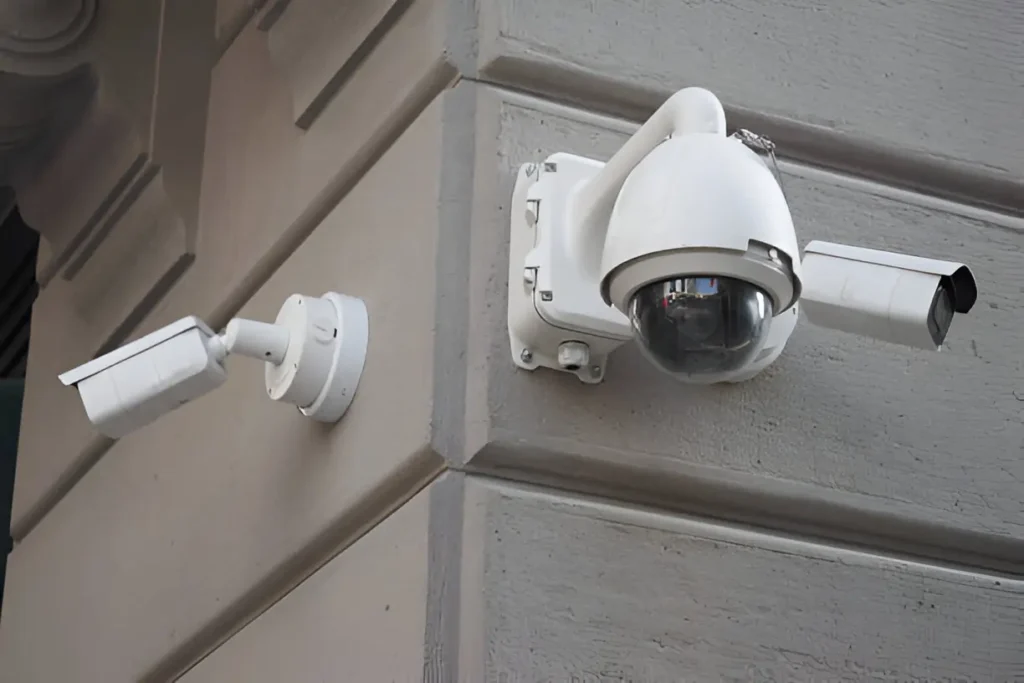Cloud-based security cameras are rapidly becoming the preferred solution for modern security needs. These cameras leverage cloud technology to store, manage, and access video footage remotely, providing a higher level of security and convenience compared to traditional security systems. This shift to cloud-based solutions is revolutionizing the security industry, as it allows users to manage surveillance footage from anywhere with an internet connection.
By incorporating cloud technology, these cameras offer advanced features such as real-time monitoring, video analytics, and scalable storage options. For more detailed insights into how these systems work, visit cloud-based security cameras.
How Cloud-Based Security Cameras Work
Cloud-based security cameras operate by capturing footage and uploading it directly to a secure cloud server. Unlike traditional systems that rely on local storage, such as hard drives or SD cards, these cameras use the internet to transmit data. This method ensures that even if the camera or local storage device is damaged, stolen, or tampered with, the video footage remains safely stored in the cloud.
Once the footage is in the cloud, users can access it via a smartphone, tablet, or computer, providing flexibility and peace of mind. Most cloud-based security solutions also offer mobile apps or web portals for easy access to live and recorded video streams, giving users complete control over their security system from anywhere.
Key Features of Cloud-Based Security Cameras
1. Remote Access
One of the primary benefits of cloud-based security cameras is the ability to access footage remotely. Whether you’re at home, at work, or traveling, you can monitor your property in real time through a web portal or mobile app. This feature is particularly useful for businesses and homeowners who want to keep an eye on their premises from afar.
2. Scalable Storage
Cloud storage eliminates the need for physical storage devices such as DVRs or NVRs, which can be expensive and difficult to maintain. With cloud-based security cameras, you can easily scale your storage capacity based on your needs. Most providers offer flexible storage plans that allow users to store footage for varying lengths of time, from a few days to several months.
3. Video Analytics
Many cloud-based security cameras come with advanced video analytics capabilities. These features allow the system to automatically detect suspicious activity, such as motion or loitering, and alert users instantly. Some systems even offer facial recognition and object detection, further enhancing security.
4. Easy Installation and Maintenance
Installing cloud-based security cameras is typically easier than setting up traditional security systems. Since there’s no need for extensive wiring or local storage devices, most systems are plug-and-play, making them accessible even for non-technical users. Additionally, because the cameras are cloud-based, software updates and maintenance can be handled remotely, reducing the need for on-site visits by technicians.
5. Enhanced Security
Security is a critical concern for any surveillance system. Cloud-based cameras offer enhanced security measures, including encryption and two-factor authentication, to protect sensitive data. Since footage is stored off-site, it is less vulnerable to tampering or theft compared to systems that store video locally.
Benefits of Cloud-Based Security Cameras
1. Cost-Effective
By eliminating the need for physical storage devices and reducing maintenance costs, cloud-based security cameras are a cost-effective solution. Users can choose a subscription plan that fits their budget and only pay for the amount of storage and features they need.
2. Flexibility and Scalability
As your security needs grow, you can easily scale up your cloud-based security system. Adding new cameras or increasing storage capacity is as simple as upgrading your plan, making cloud-based solutions highly adaptable for both residential and commercial applications.
3. Disaster Recovery
With footage securely stored in the cloud, cloud-based security cameras provide excellent disaster recovery capabilities. In the event of a fire, flood, or other catastrophic event that damages physical infrastructure, your video footage remains safe and accessible, ensuring that critical data is never lost.
Choosing the Right Cloud-Based Security System
When selecting a cloud-based security system, it’s essential to consider factors such as storage capacity, video quality, and additional features like video analytics or remote access. Platforms like IPTechView offer comprehensive solutions tailored to meet the needs of various industries, from small businesses to large enterprises.
Conclusion
Cloud-based security cameras are a game-changer in the world of surveillance, offering unprecedented flexibility, convenience, and security. By leveraging cloud technology, users can access footage remotely, enjoy scalable storage, and benefit from advanced features like video analytics. Whether for home or business use, cloud-based security systems provide an efficient and cost-effective way to keep your property safe.
